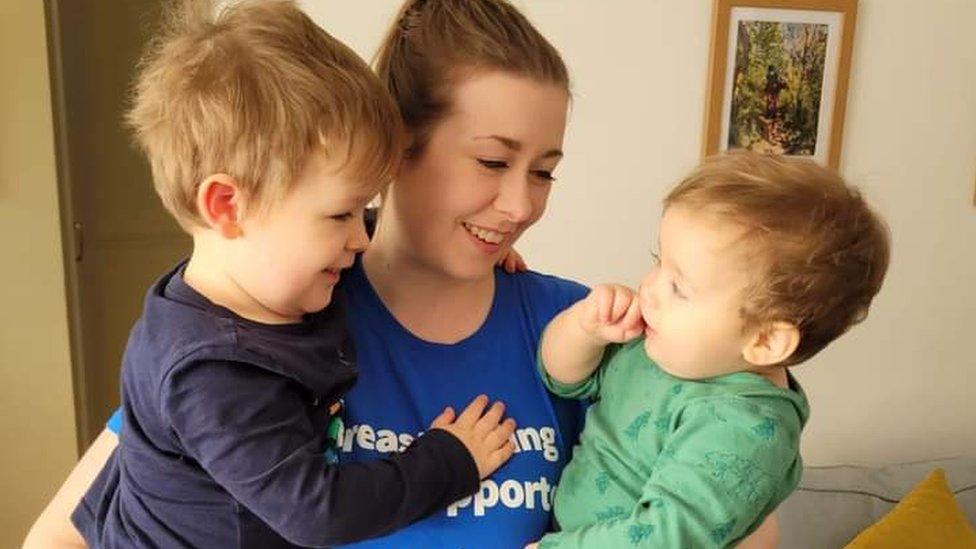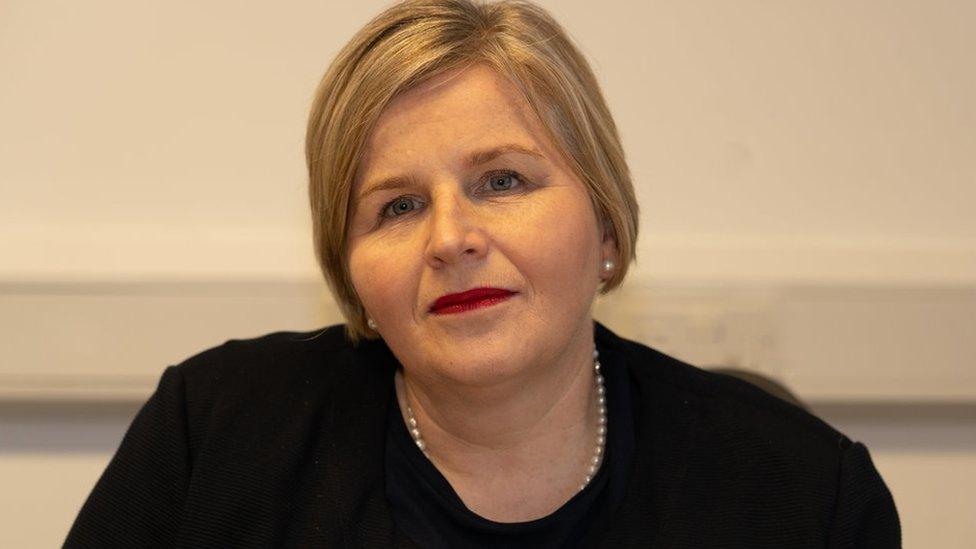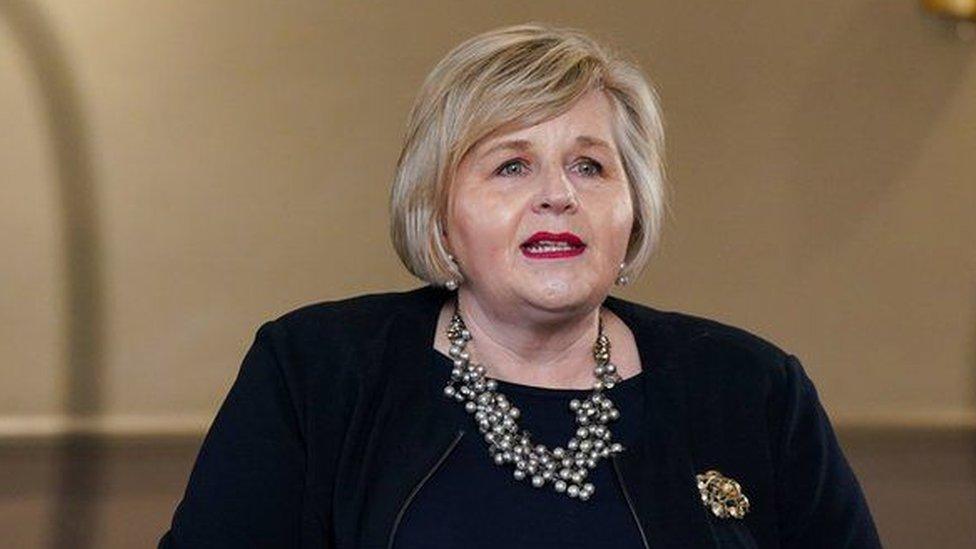Language around birth should be less judgemental, midwives' report says
- Published

Sue says the words used when she gave birth stayed with her for a decade
The language used around childbirth should be less judgemental and more personal, a report led by midwives has found.
Most women consulted said terms such as "normal birth" should not be used, it says.
The report recommends asking pregnant women what language feels right for them.
Maternity care has been under the spotlight after a recent review found failures had led to baby deaths.
The new guidance "puts women's choices at its heart, so that they are in the driving seat when it comes to how their labour and birth are described", Royal College of Midwives chief executive Gill Walton said.
Positive experience
The RCM worked with a number of different organisations to survey 8,000 people - including women, their partners, doctors and midwives - from across the UK to develop "a shared language for pregnancy, labour and birth".
About 1,500 women who had given birth in the past five years gave their views.
Most preferred the term "spontaneous vaginal birth" to "normal birth", "natural birth" or "unassisted birth".
Words suggesting "failure", "incompetence" or "lack of maternal effort" should also be avoided, they said.
They wanted labour and birth to be a positive experience and for the language used to be non-judgemental, accurate and clear.
'Difficult feelings'
When she was transferred to hospital last year, Alice Ashburn, from Cornwall, was described by a consultant as "the failed home birth".
After the traumatic birth, with forceps, of her first son, Alfred, she had chosen to try to give birth to her second, William, at home.

Alice felt she had failed, after her home birth did not happen
"When those words are used in front of you, you feel you've failed," Alice says.
"Health professionals need to be aware of how much it affects you."
Alice contributed to the language consultation because she felt staff should listen more to people's individual needs and avoid emotionally-charged language.
It is "so important how you enter parenthood", she says, and "when it goes wrong it can lead to difficult feelings".
'Horrendous phrase'
The first time Sue McKellar, from Glasgow, heard the term "incompetent cervix", she was 20 weeks pregnant and bleeding.
She had no idea what her doctor meant - but the words stayed with her for a decade and it is only now she feels able to talk about it.
Sue had been in that situation before - and the twins she was carrying then had not survived.
"Incompetent cervix" is a medical term for when the neck of the womb shortens and opens earlier than usual in pregnancy, which can contribute to premature birth.
The cervix normally stays shut until the later stages of pregnancy and opens as part of labour when a pregnancy reaches full term.
And Sue's consultant - who had otherwise given her excellent care - said this was likely to be one of the reasons the twins had died.
"To be honest, when she first said these words, I just laughed because it is such an inappropriate, such a horrendous phrase," Sue says.
"I felt like it was such a cold thing to say - so condescending.
"I was angry and offended."
And Sue wishes people had considered the fact she had had a number of losses, before "launching into offensive medical terms".
Her baby, Paulie, was born alive and well 16 weeks later, after Sue had a cervical stitch. She now has another girl, Daisy, too.
"The language is so vital - a small change can make such a massive impact," Sue says.
'Negative connotations'
In the recent Ockenden review of baby deaths at Shrewsbury and Telford NHS Trust, there were suggestions of too much focus on promoting "normal" or vaginal births to the point they were valued above all other types of births.
And this meant women's concerns were at risk of being ignored.
The term "normal birth" is used by organisations including the International Confederation of Midwives and the World Health Organization.
But it has "often taken on negative connotations in the UK, and particularly in England", the RCM report says.
Related topics
- Published26 May 2022

- Published7 April 2022

- Published30 March 2022
